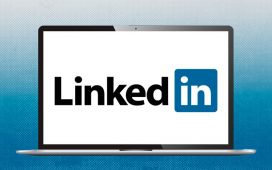It’s not unusual to hear ambitious young professionals talk about their five- or even 10-year plans — but it might be doing more harm than good.

Kanok Sulaiman | Getty Images
Planning things to a tee is not only ineffective, but it can also derail attempts to establish a fulfilling career, Uber CEO Dara Khosrowshahi told LinkedIn CEO Ryan Roslansky in an interview published on Thursday, per CNBC Make It.
Related: 6 Common Career Mistakes You Must Avoid
“Don’t over-plan your career … I see young people make this mistake all the time,” Khosrowshahi told Roslansky. “They’ll say, ‘I want to be a VP by this time,’ or ‘I want to make X amount of money.'”
Figuring it all out from the jump is causing young people a lot of anxiety anyway, according to LinkedIn’s 2017 research, which found that 61% of 25-33 year olds feel pressure to find a job or career they’re passionate about (and comparing themselves to more successful friends emerged as another top factor).
“Have an idea of where you want to go, [but] you’ve got to be open to opportunity, then you’ve got to jump at it, you’ve got to take advantage of it,” Khosrowshahi continued. “I’ve never been in a hurry in my career, because if you’re open, and you really want to hone your craft, it’s so much more satisfying [to take your time].”
Khosrowshahi served as Expedia‘s CEO for 12 years before stepping into his current role at Uber in 2017; he credits his time there with helping him cultivate valuable leadership skills in flexibility, communication and listening.
Related: The Most Important Career Lessons Are the Ones You Learn From Your Mistakes
“There’s a career compounding that’s magical,” he said. “I think if you’re a ‘three or four years and out’ kind of a person, you’re really missing out on that career compounding … it does take time, but when you take advantage of that, magic happens.”











